China vows firm initiatives against plans to spread war to Korean Peninsula
China has vowed to take “firm initiatives” against those seeking to “spread war” to the Korean Peninsula, stressing that sanctions against North Korea will not help resolve Pyongyang's nuclear issue.
North Korea, which has been under rounds of crushing United Nations Security Council (UNSC)’s sanctions since 2006 over its nuclear and ballistic missile programs, has ramped up its missile launches this year, conducting more than a dozen weapons tests, including of an intercontinental ballistic missile (IBM) at full range for the first time since 2017.
The United States, which strongly backs further sanctions on North Korea, failed in its latest push at the UNSC for new sanctions on the North after China and Russia vetoed the US' draft resolution.
China and Russia are opposed to further sanctions on the North and emphasize dialog as the only possible way to defuse tensions on the Korean Peninsula.
On Friday, China's ambassador to the UN Zhang Jun denounced the US for using the Korean Peninsula issue as a card for its “Indo-Pacific strategy”, warning that Washington’s one-sided emphasis on sanctions would not only risk confrontation, but also cause humanitarian problems.
Despite UN claims that the sanctions would not affect the delivery of desperately-needed humanitarian aid to North Korea, relief organizations say that strict trade and banking measures have hindered the flow of vital supplies.
Late last year, China and Russia pushed the Security Council to remove certain sanctions on the North in recognition of steps Pyongyang had taken to denuclearize and to encourage further negotiations.
Former US President Donald Trump attempted to court Pyongyang. He met with North Korean leader Kim Jong-un three times, but he refused to relieve any of the sanctions in return for the several steps taken by Pyongyang toward denuclearization. That hampered further diplomacy between and prompted Kim to announce an end to a moratorium on the country’s missile tests.
“Regrettably, the US did not reciprocate North Korea's positive initiatives in accordance with the action-for-action principle,” Zhang said, adding, “China has been calling on all parties to exercise calm and restraint, and to desist from actions that could increase tensions and lead to miscalculations.”
The Chinese envoy also stressed that the UNSC should play a positive and constructive role, and its actions should help de-escalate the situation and prevent it from deteriorating.
“Facts have proved that dialog and negotiations are the only viable way to solve the problem. The US, as a main stakeholder in the peninsula question, is directly responsible for promoting dialog and negotiations,” Zhang further said.
He also held Washington’s “flip-flop” policies as the main culprit behind its failure to uphold the results of previous negotiations. “This is an undeniable fact.”
Zhang defended Beijing’s veto against US draft on Thursday, saying, “China's voting position is based on our assessment as to whether a proposal contributes to a solution, whether it helps maintain international and regional peace and security, and whether it can head off greater tensions or a bigger disaster.”
China’s envoy to the UN further warned that if some people are making other plans aimed at spreading the flames of war to Northeast Asia, to the Korean Peninsula, “China would have no choice but to take stern and firm initiatives to defend the peace and stability of the Korean Peninsula and that of Asia-Pacific, because that is what we have to do in order to fulfill our due responsibility.”
During the past 16 years, the UN Security Council has steadily, and unanimously, ramped up sanctions to cut off funding for North Korea's nuclear weapons and ballistic missile programs.
While they have delayed some action behind closed doors in the Security Council's North Korea sanctions committee, the Thursday vote on the resolution was the first time they have publicly broken unanimity.
VIDEO | Press TV's news headlines
VIDEO | Iran will not 'capitulate' since it has military surprises for US
China overtakes US as Germany’s top trading partner
VIDEO | Displaced Gazans struggle to find clean water amid Ramadan
VIDEO | Pakistan strikes militant camps along Afghan border after suicide bombings
Iran FM: Chance still exists for win-win solution to nuclear issue
Denmark rejects Trump's plan to send US hospital ship to Greenland
US Secret Service kills man trying to enter Trump’s Mar-a-Lago estate


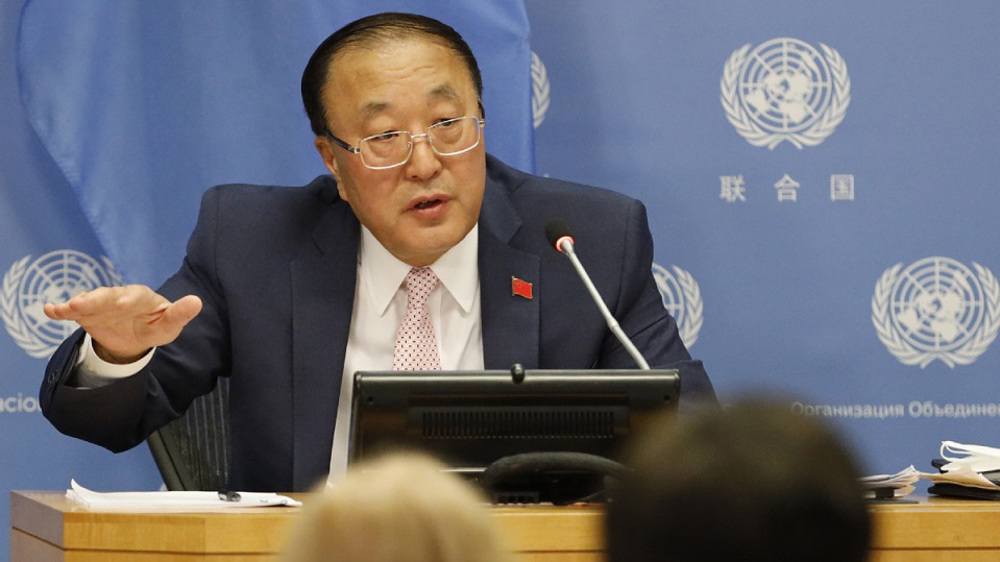
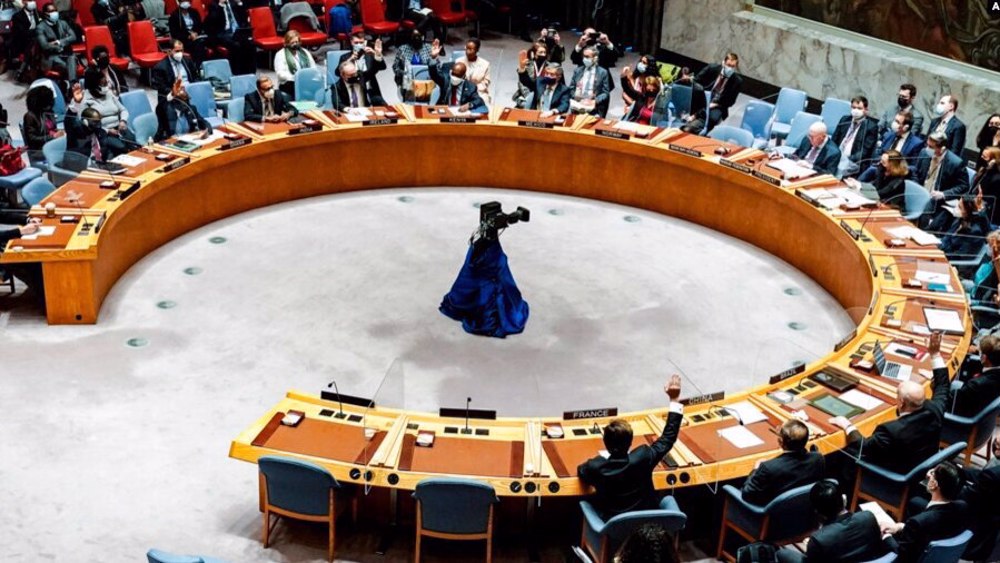
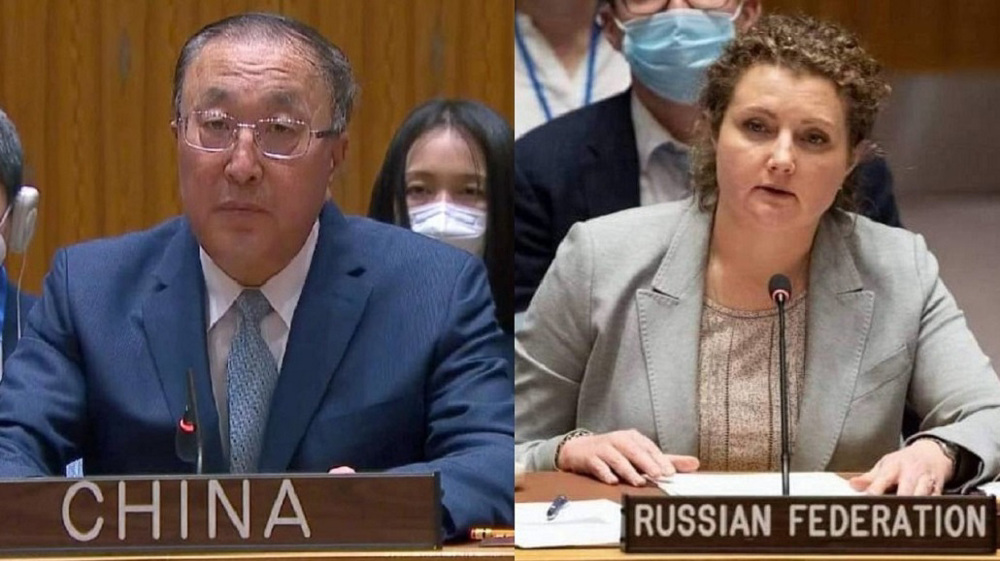
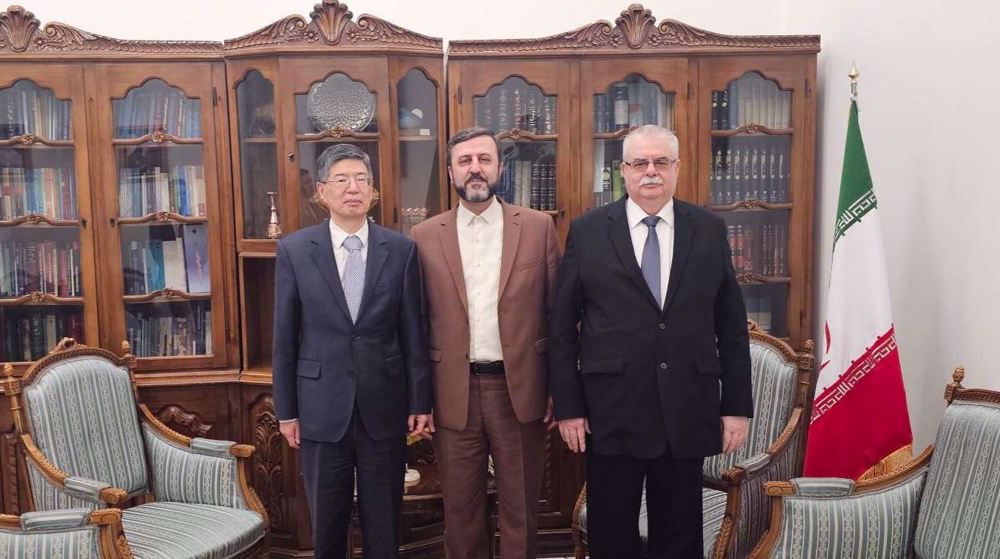
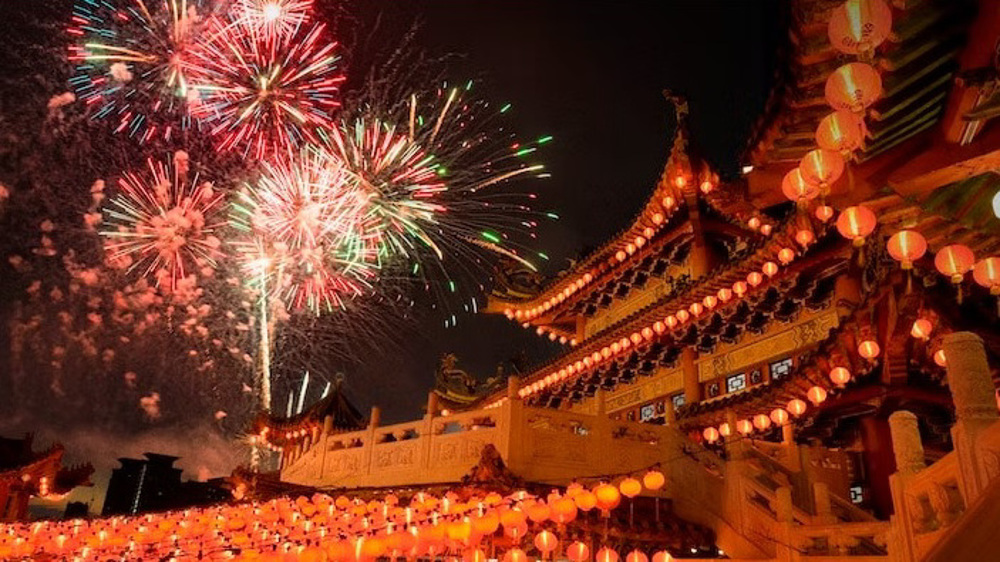
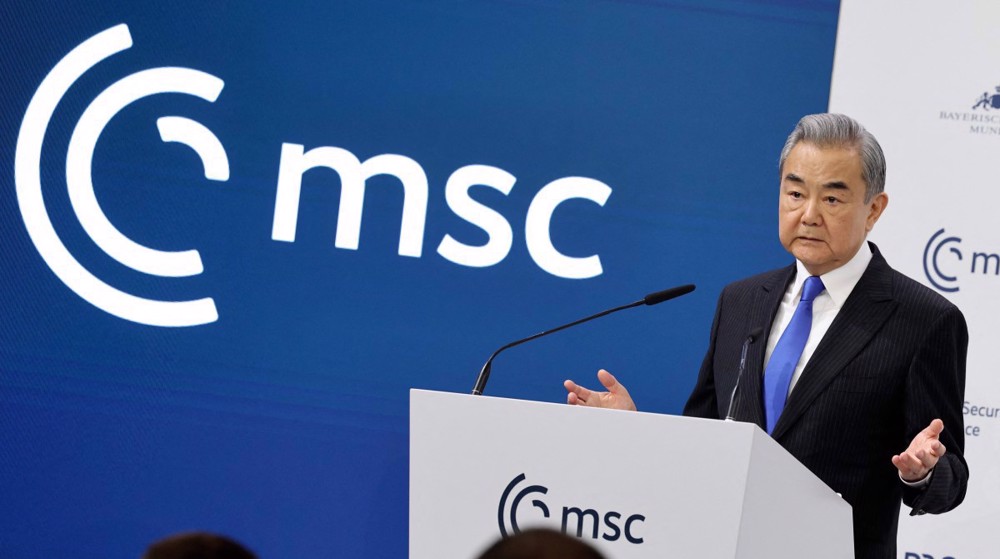




 This makes it easy to access the Press TV website
This makes it easy to access the Press TV website